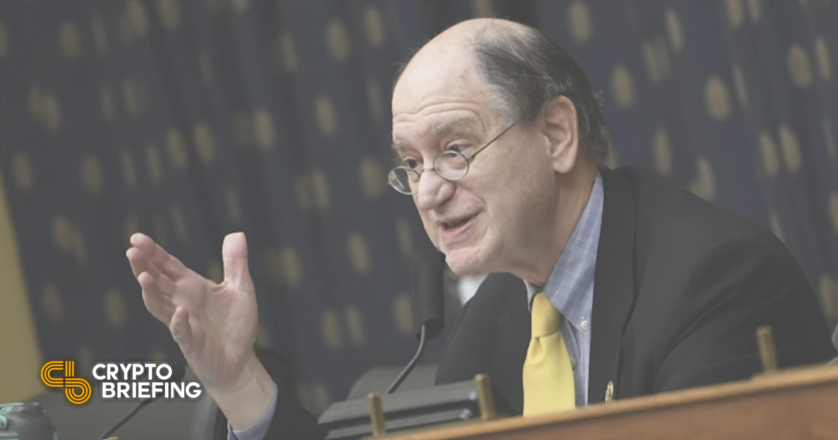Daily Briefing: Concession and Capitulation
One of Washington's most ardent crypto opponents has signaled that certain types of regulatory battles have already been lost.

Key Takeaways
- Rep. Brad Sherman of California said in an interview this weekend that it is now effectively too late for the government to ban crypto.
- The congressman elaborated that the space had "too much money and power" by now and could withstand efforts to outlaw it.
- Sherman's comments represent a rare instance of an American politician backing down instead of doubling down.
Share this article
Comments from a prominent anti-crypto crusader on Capitol Hill have signaled that even the most ardent hardliners can soften their positions based on the nature of circumstances.
Money and Power
Making the rounds this weekend were some ironically positive comments made by Congressman Brad Sherman (D-CA) on Sunday. Rep. Sherman is no fan of cryptocurrency: he has argued time and again that crypto undermines the integrity and stability of the U.S. dollar as the world reserve currency. He also worries about the capacity of cryptocurrencies to enable criminals, scammers, and terrorists to launder money, make ransom demands, fund illegal regimes, and whatever other bad activities bad actors get up to.
In fact, Brad Sherman is probably the most vociferous critic of crypto in Congress today. That’s why it was so surprising to see yesterday in the Los Angeles Times that Rep. Sherman had effectively given up on his earlier aspirations to outlaw the technology altogether.
“I don’t think we’re going to get [to a ban] anytime soon,” he told the Times, effectively conceding the fight on the public record. “Money for lobbying and money for campaign contributions works, or people wouldn’t do it; and that’s why we haven’t banned crypto. We didn’t ban it at the beginning because we didn’t realize it was important, and we didn’t [sic] ban it now because there’s too much money and power behind it.”
I say “surprising” because these comments are not common in the U.S. political arena. It’s no secret that American politics is a deeply combative sport, and it’s only gotten more vicious in the last few years. When American politicians take a stance against something, they rarely back down and, in fact, often assume an aggressive posture toward it. What we’re seeing from Rep. Sherman is something rarely seen in today’s politics—capitulation.
As debates heat up over regulation and the role of government, however, I wouldn’t be surprised to see a lot more of this kind of language going forward. Sherman’s comments affirm what was already widely believed among the crypto community: that the movement has gained enough popularity and financial power to assert itself as a real-world player. In many ways, the guiding ethos of the crypto movement has been a resistance to governments’ ability to shut it down. In this regard, it appears to have succeeded within the context of the world’s most powerful economy.
But that’s not to say that governments and authorities will not continue to impose rules, regulations, and outright restrictions on the space. The Treasury’s sanctioning of Tornado Cash last month is, so far, the most prominent example of a Western government’s ability to bring the hammer down on open-source protocols. Decentralization proponents immediately pointed out that the Tornado Cash protocol itself couldn’t be shut down; nevertheless, it became very dangerous for front-end providers to continue allowing access to it and even more so for users actually to engage with it. There are many things the government cannot outright ban, but they can make it very punishable to interact with them.
I think it’s likely, then, that we are entering a kind of thesis-antithesis-synthesis moment in the history of this industry that will shape the relationships between authorities and open-source code for years to come. Brad Sherman, the leading anti-crypto crusader on Capitol Hill, has effectively backed down from his hardline ideological stance; perhaps it’s time industry proponents do the same.
Capitulation is the first step toward compromise, and compromise is what makes collective forms of governance work. The number of political agreements in U.S. history that made everyone involved happy is vanishingly small, and the chances that any side in this fight will see their views executed with 100% faithfulness is virtually nil. One of the industry’s most prominent critics just offered a major concession, however—the question is, how should the industry respond?
Disclosure: At the time of writing, the author of this piece owned BTC, ETH, and several other cryptocurrencies.
Share this article
